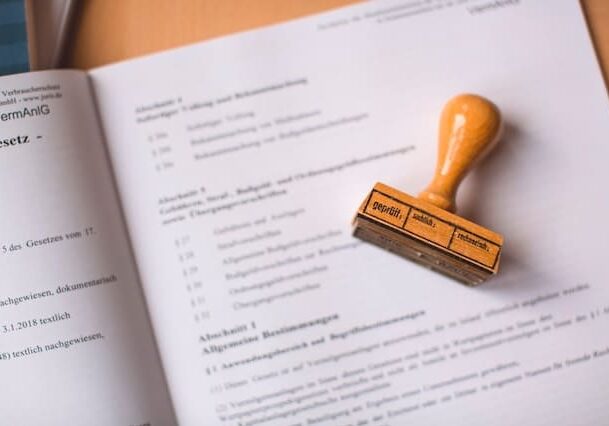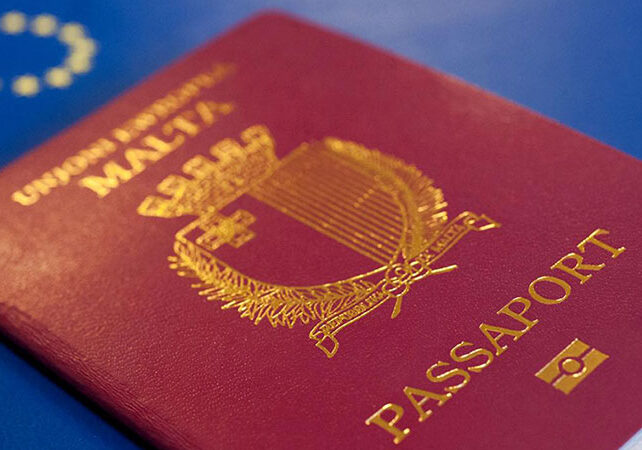Living in Malta is fast becoming a top choice for expats, especially among Americans. From the incredible scenery and summer climate to the range of educational options and business opportunities, this small island in southern Europe is an absolute gem. For those wondering what it is like living in Malta as an American, the island offers a welcoming community, English as an official language and it has a high quality of life.
In this article, you will learn about:
- The benefits of living in Malta
- The best places to live in Malta
- How to obtain Maltese residency or citizenship
- The cost of living in Malta for expats, and so much more
Benefits of Living in Malta
Dual language
Mediterranean weather
Maltese lifestyle
Access to excellent healthcare services
Fantastic education system
Lower cost of living
Dual language
In Malta, English and Maltese are the two official languages. Luckily, for expats, English is extensively used, making communicating with locals and other expats easy. Expats generally don’t need to worry about learning the Maltese language, but just like other countries across the world, it does show more of an effort for integrating.
Mediterranean weather
Malta boasts a Mediterranean climate, offering warm summers and moderate winters. The weather in Malta throughout the year is generally as follows:
- Summer: June-September with highs of 35°C (95°F) expected.
- Autumn: October-November with temperatures cooling to 24°C (75°F) in October and 20°C (68°F) by November.
- Winter: December-February with temperatures typically hovering at around 15 °C (59°F)
- Spring: March-May with temperatures starting at 15°C (59°F) in March and rising to around 22°C (72°F) in May.
Maltese lifestyle
Compared to other EU countries, Malta offers a very laid back and Mediterranean island lifestyle that emphasizes community and family. This can be welcoming for expats in Malta that want to engage with locals.
Outdoor activities are always on the go in Malta, with hiking, swimming, and various watersports on offer throughout the year.
For history hunters, Malta invites you to explore the museums, art galleries, and historical places on the island, offering insights into the culture of Malta.
Access to excellent healthcare services
Malta residents and EU citizens can access the fantastic Maltese public healthcare system. From general doctors to public hospitals, there are various options available.
For expats there is a range of private healthcare facilities, including general practitioners, specialists, and private hospitals, with quick service and top-notch facilities.
It is highly recommended that all expats take out private health insurance to ensure they are covered throughout their stay. Plus, with most medical practitioners speaking English, communicating isn’t a problem.
Fantastic education system
There are public schools, private schools, and church schools in Malta with an excellent educational system all round. The range of international schools in Malta offer a world-class education following the British curriculum.
Lower cost of living
The cost of living in Malta is comparatively lower to other nations within the European Union. We’ll get into this a bit more shortly, but the biggest expense for expats in Malta is generally housing.
Best Places to Live in Malta for Expats
Malta is home to some beautiful places for expats to call home. Here are some of the best places to live in Malta for expats.
- Valletta: As the capital city of Malta, Valletta is the place to be for a bustling and vibrant feel. The city is home to a busy waterfront, sensational Baroque architecture, and the ideal mix of history and modern living.
- St. Julian’s: Another great option for a bustling feel, St. Julian’s is well known for its nightlife and entertainment, making it a popular option for young expats.
- Mdina: For a slower pace, Mdina, a fortified hilltop city known for its historic architecture and breathtaking views of the island is a fantastic option. Mdina is one of the top places to retire in Malta.
- Mellieħa: Family-friendly activities and a more relaxed feel can be found in Mellieħa. The stunning beaches and slower pace of life is a breath of fresh air.
- Marsascala: If you’re looking to live like the locals, Marsascala is a charming seaside town with a more culturally enriching and quiet atmosphere.
Whatever you’re looking for as a foreign national in Malta, there is an option to suit your lifestyle. While finding the right place to live is important, the first step is finding the correct immigration option. Our guide to the Malta citizenship by investment program might just have what you’re looking for.
The Cost of Living in Malta: Breakdown for Expats
The affordability of living in Malta is one of its main benefits. Malta has a comparatively inexpensive cost of living compared to other European countries, attracting expats looking for a comfortable lifestyle without breaking the bank.
Let’s break down the typical Malta living costs
Item | Costa |
Apartment (1 bedroom) in City Centre | €949.25 |
Apartment (1 bedroom) Outside of Centre | €789.34 |
Apartment (3 bedrooms) in City Centre | €1,625.86 |
Apartment (3 bedrooms) Outside of Centre | €1,231.10 |
Monthly Public Transport Pass | €15 |
Meal, Inexpensive Restaurant | €15 |
Meal for 2 People, Mid-range Restaurant, Three-course | €70 |
Average Cost of Living (Family of Four) without Rent | €2,80 |
Average Cost of Living (Single Person) without Rent | €780 |
Utilities ((Electricity, Heating, Cooling, Water, Garbage) for 85m2 Apartment) | €91 |
Mobile Phone Plan (Calls and 10GB+ Data) | €24 |
Internet (60 Mbps or More, Unlimited Data, Cable/ADSL) | €29 |
Average Groceries Per Week (Single) | €40-€70 |
Average Groceries Per Week (Family of Four) | €100-€150 |
Cost of living in Malta vs the US and the UK
If you’re living in Malta as an American or a UK citizen, here are a few cost of living comparisons to give you some insights into the difference in costs to your home country.
Item | Malta | US | UK |
Apartment (1 bedroom) in City Centre | €949.25 | €1,579 $1,759 | €1,25 |
Apartment (1 bedroom) Outside of Centre | €789.34 | €1,298 $1,445 | €1,01 |
Apartment (3 bedrooms) in City Centre | €1,625.86 | €2,641 $2,942 | €2,09 |
Apartment (3 bedrooms) Outside of Centre | €1,231.10 | €2,152 $2,152 | €1,59 |
Monthly Public Transport Pass | €15 | €61.72 $68.75 | €82.60 |
Meal, Inexpensive Restaurant | €15 | €17.96 $20 | €17.81 |
Meal for 2 People, Mid-range Restaurant, Three-course | €70 | €67.34 $75 | €74.81 |
Average Cost of Living (Family of Four) without Rent | €2,80 | €3751 $4,174 | €3,29 |
Average Cost of Living (Single Person) without Rent | €780 | €1054 $1,173 | €969 |
Utilities ((Electricity, Heating, Cooling, Water, Garbage) for 85m2 Apartment) | €91 | €186 $207 | €291 |
Mobile Phone Plan (Calls and 10GB+ Data) | €24 | €49.19 $54.78 | €14.87 |
Internet (60 Mbps or More, Unlimited Data, Cable/ADSL) | €29 | €63.74 $71.00 | €36.60 |
Average Groceries Per Week (Single) | €40-€70 | €134-€269 $150-$300 | €30-€60 |
Average Groceries Per Week (Family of Four) | €100-€150 | €44-€89.90 $50-$100 | €100-€180 |
Malta Citizenship and Residency for Foreigners
If you’re considering living in Malta as a foreigner, Malta citizenship or residency is within reach. Here are a few options to consider.
Malta Permanent Residence Programme (MPRP)

- Renting a property in Malta: The applicant must lease a property worth at least €12,000 per year, make a non-refundable government contribution of €58,000, and a €2,000 donation to a charitable organization set out by the Residency Malta Agency.
OR
- Purchasing a property in Malta: The applicant must purchase a property worth at least €300,000 (South of Malta/Gozo) or €350,000 (Rest of Malta), make a non-refundable government contribution of €28,000, and a €2,000 donation to a charitable organization set out by the Residency Malta Agency.
Maltese Citizenship by Naturalization for Exceptional Services by Direct Investment (CES)
This is an investment-based citizenship route that allows individuals to apply for citizenship after contributing financially to Malta’s economy. In fact, if you meet the requirements, you may be eligible for a Malta passport within 12-36 months. The program requires:
- A donation to the National Development and Social Fund: €600,000 if applying after three years of residency or €750,000 after one year of residency
- A real estate purchase: At least €700,000 or a long-term rental contract with an annual rent of at least €16,000.
- A further donation of €10,000 to a registered non-governmental organization.
The Malta citizenship by investment program is one of the most popular for foreign individuals looking to obtain EU citizenship.
Living in Malta - Pros and Cons
Pros of living in Malta
There is a plethora of pros to living in Malta, here are some of the top reasons to consider living in Malta as an expat:
1. EU membership
Malta is part of the European Union providing foreign nationals who obtain citizenship access to the Schengen Zone and free movement within the EU. This is a fantastic opportunity for those looking to expand their business or simply travel more.
2. Proximity to Africa and the Middle East
Another big pro for those looking to live in Malta while running a multinational business is the proximity to the Middle East and Africa. This makes Malta the ideal investment opportunity for those in the shipping sector.
3. Thriving economy
Malta’s economy is booming with industries like technology, tourism, finance, iGaming, and blockchain pushing the entire economy forward in leaps and bounds. Whether you’re looking to invest in a Maltese business or have the skills needed to make waves within your industry, Malta offers a world of business opportunities. In fact, the travel and tourism industry in Malta is set to grow by 3.92 percent annually between 2024-2029.
4. Rich history and culture
Malta has a long and fascinating history, with UNESCO World Heritage sites waiting to be explored. From landmarks and museums to cultural events and festivals, Malta is teaming with historic culture for expats to enjoy. In fact, the whole of Valletta, the capital city of Malta, is a UNESCO World Heritage site.
5. Attractive tax benefits
Taxes in Malta is one of the main reasons living in Malta has become so popular among expats. From the competitive corporate tax rate (35 percent) and double taxation treaties to the favorable personal income tax incentives, the tax system in Malta is very accommodating to foreign nationals.
6. High quality of life
Overall living in Malta offers a high quality of life. The healthcare and education systems are on par with many of the top western European countries, often surpassing the quality and beating the price.
Cons of living in Malta
While there aren’t many bad things about living in Malta, there are some drawbacks to consider before making the move. Let’s take a closer look.
1. Increasing prices
Due to Malta becoming a lot more popular for expats, Malta isn’t the cheapest country in the EU. However, if you find the right real estate agent and speak to the friendly locals you may find some good cost of living hacks.
2. Lack of space
Since becoming more popular, the densely populated country has become a bit of a tight squeeze. This affects everything from the housing options available in the more populated areas and finding a secluded space to relax.
3. Nature shortage
If you’re looking for wide open expanses of green, Malta may not be the best of the Maltese islands to choose from. However, you will find an abundance of coast, sea, and sensational beaches.
Is Malta a Good Place to Live for Expats?
Life in Malta for expats is fantastic. From the incredible history on every corner and beautiful beaches to the fantastic business opportunities and friendly locals, Malta is a great place for expats and their families to call home.
How Can Global Citizen Solutions Help You?
Global Citizen Solutions is a boutique investment migration consultancy firm focused on finding the right residency or citizenship by investment program for individuals wishing to secure their future and become global citizens. With offices in Portugal, the United Kingdom, Hong Kong, and Brazil, our multilingual team guides individuals and families from start to finish, providing expert advice considering freedom, mobility, taxation, and security.
- We have helped hundreds of clients from 35+ countries in all the top residency by investment and citizenship by investment programs. With an in-depth and comprehensive understanding of the area, we provide our clients with solid guidance.
- Our team has never had a case rejected. Our 100 percent approval rate sets us apart from our competitors and guarantees that you can expect a successful application.
- Our transparent pricing covers all the processes from opening your bank account, document certification, and legal due diligence to investment and submission. As there is one fee for the entire process, you can be confident that you will not face any hidden costs later.
- All data is stored within a GDPR-compliant database on a secure SSL-encrypted server. You can be safe knowing that your personal data is treated with the utmost security.
- Global Citizen Solutions provides an all-encompassing solution. Our support can continue even after you receive your passport. We offer additional services such as company incorporation, Trusts, and Foundations formation.
- The BeGlobal Onboarding System® allows you to access the status of your application every step of the way, something that sets us apart from our competitors.

Frequently Asked Questions About Living in Malta
What is it like living in Malta as a foreigner?
Generally, expats from EU and non-EU countries love the Maltese lifestyle. The welcoming locals, pleasant climate, rich history, affordable healthcare, and flourishing expat community all make living in Malta as a foreigner more rewarding.
What are the benefits of living in Malta for expats?
The benefits of living in Malta for expats from non EU countries, include access to the Schengen Zone and other EU nations, a favorable tax system set up by the Maltese government, fantastic education opportunities, and a rich culture waiting to be explored.
Is Malta a good place to live for retirees or digital nomads?
Absolutely! Malta is well known for being one of the top places in Europe to retire. Digital nomads in Malta can also benefit from living in a different country, exploring the amazing history, and meeting the friendly locals.
How does living in Malta compare to other European countries for expats?
If you’re an EU citizen, you may be in for a surprise. While Malta is part of the European Union, the small Mediterranean island is quite different to other EU countries. You can expect a much slower pace of life, along with a lower cost of living.
What are the challenges of living in Malta as an American?
One of the biggest challenges for Americans in Malta is the religious differences. Most Maltese citizens are part of the Roman Catholic church, while the US is home to a very broad range of denominations. Malta also has a very different culture to the US, so getting used to the social customs take time.
How easy is it to integrate into the local community when living in Malta?
Malta’s diverse and welcoming society makes it simple for digital nomads to connect with like-minded people and blend in with the locals. The warm and friendly nature of the Maltese fosters a strong sense of community, helping newcomers feel at home quickly.
How does the job market in Malta impact foreigners and expats?
The job market in Malta is booming in certain industries like finance, IT, technology, and iGaming. This opens a world of opportunities for expats to live and work comfortably in Malta. However, it’s vital that you follow the correct due diligence in obtaining the correct visa through the right channels.
What is the tax situation for expats living in Malta?
Taxes in Malta for expats varies based on your situation. Whether you are a citizen or have permanent residency will affect the types of tax you pay. But have no fear, Malta has a range of incentives and double tax treaties that make it one of the preferred tax systems in the EU.
Is Malta a good place for expats with families?
Malta is celebrated for its warm and welcoming community, making it easy for expat families to seamlessly integrate and feel at home. The range of educational options is a great incentive, with local and international schools offering a fantastic schooling experience.
How does the weather in Malta affect daily life for expats?
Malta’s warm, sunny weather generally enhances daily life for expats, offering exciting outdoor activities and a relaxed lifestyle. However, the hot summers can be challenging, requiring adjustments to stay cool and hydrated.



